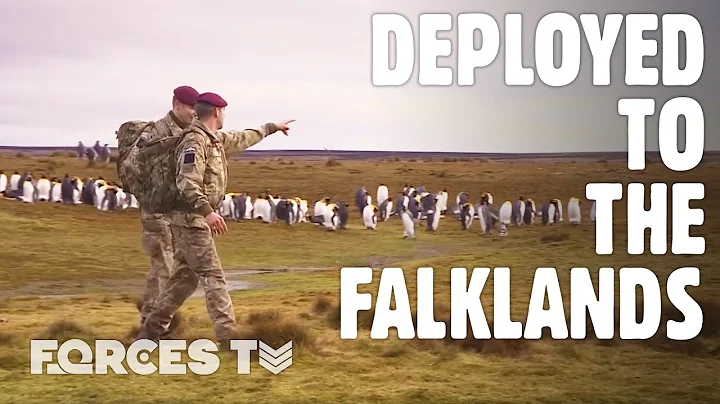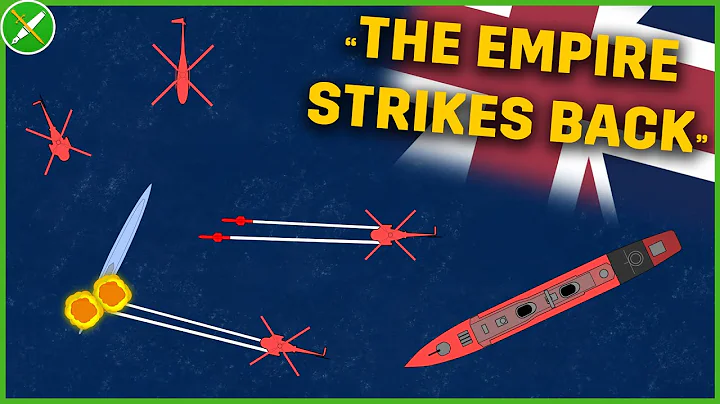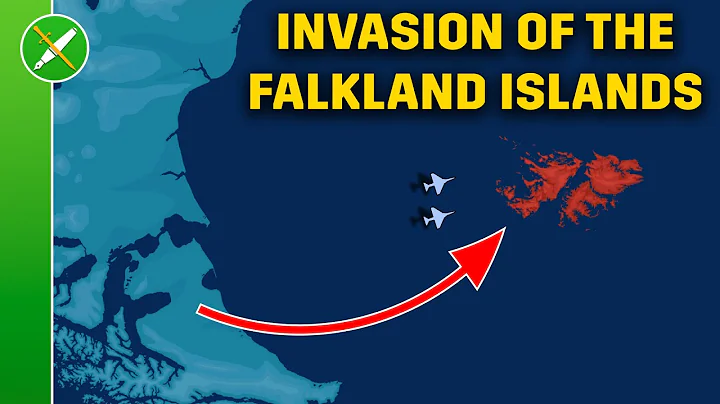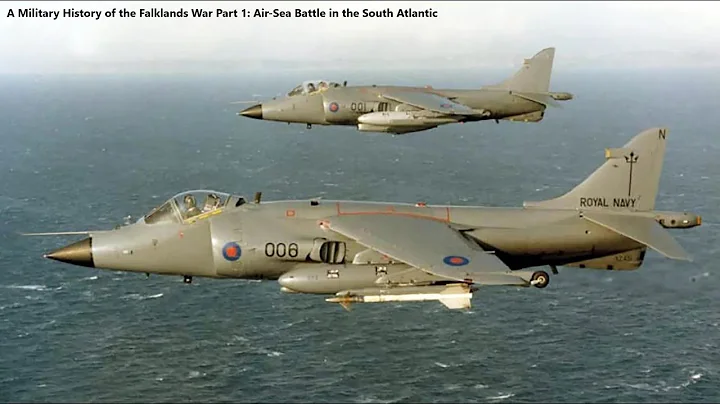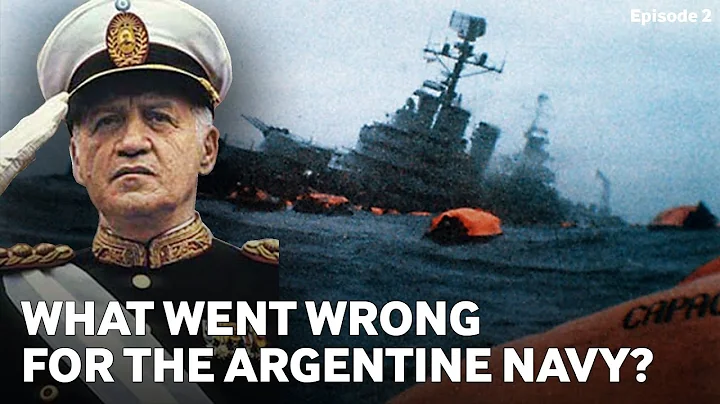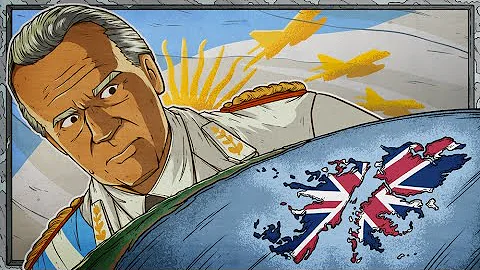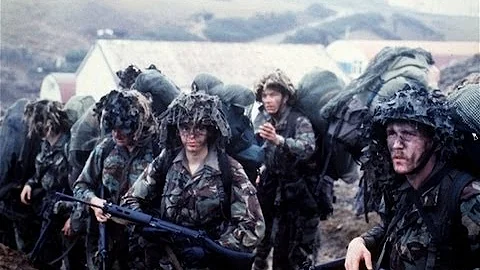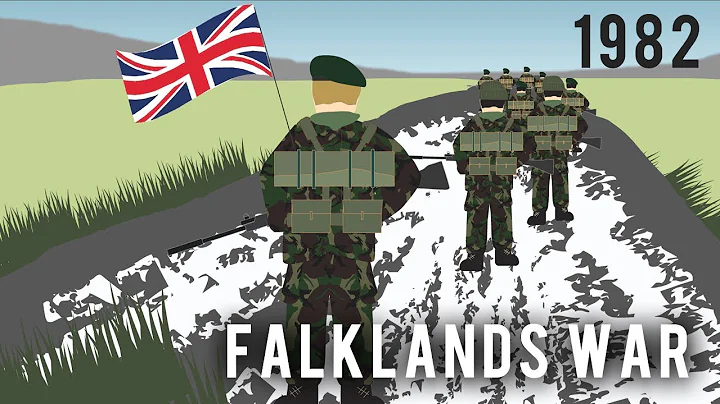40 years ago, the Argentine armed forces launched an operation to seize the Falkland Islands and South Georgia, a British colonial territory that Argentina considered as territory it occupied. The outbreak of the war has been described in detail in many books and articles, and it is meaningless to talk about its vicissitudes. Little is known about why the Argentinian people, who almost unanimously support their government's military action, believe the Falkland Islands are theirs. It is unclear how a country of 28 million people with underdeveloped industry and an army with no combat experience decided to attack Britain, a nuclear power with a population of 56 million, a strong economy and strong professional capabilities, in the midst of a severe socioeconomic crisis. army. The main reason for the
war is simple. It is written in Argentine history textbooks from the mid-19th century: The Malvinas Islands (the Falkland Islands) were discovered by Spanish navigators and were part of the Viceroyalty of La Plata , ruled by Spain. After the collapse, they passed legally to Argentina, but were captured by the British in 1833. Those ones. Eight generations of Argentines grew up believing that the Malvinas Islands were their land, occupied by colonizers.
Written in the textbook, it cuts deeply into one's memory. And rarely does he decide to check how true this is. For Argentinians, it is an axiom that does not require proof that Malvern belongs to Argentina.
Meanwhile, things are not exactly the same in the Islands. Argentinian tradition claims that the islands were discovered by Captain Esteban Gomez during the Magellan expedition, but this is clearly a fiction: the expedition moved strictly along the coast of the mainland, and the islands are 360 kilometers away from it. Captain Gomez writes of meeting "giants" on the island, i.e. Patagonian Indians who did not live there. MagellanNeither Gomez declared the islands to be the property of the Spanish Crown.
There is no doubt that Dutch captain Sebald de Werth visited Flaklands in 1600, but he also did not claim them as Spanish possessions. But the English captain John Strong visited the islands in 1690 and gave them their current name.
In 1764, France declared the Falkland Islands a French colony (and called them the Malvern Islands). They also founded the first settlement in East Falkland, which they called Port St. Louis. A year later, British captain John Byron, unaware of the hoisting of the French flag, declared the islands British possessions and established the port of Egmont in West Falkland. But in 1766, Spain claimed rights to the islands and demanded the expulsion of the French. Port San Luis becomes Puerto Soledad. In 1770, Spanish admiral Don Juan Ignacio de Madariaga forced the British to leave Port Egmont, but a year later the Spanish admiral Don Juan Ignacio de Madariaga was defeated by the British captain John Scott a year later. Special deportation, the latter restored British settlement. However, in 1780, the British left the islands under the threat of Spanish invasion.
In 1811, the Spanish garrison left the Falkland Islands, leaving behind commemorative plaques that these islands belonged to Spain. Even though the British had done it 35 years earlier.
Later, the islands were used by British and American whalers.

Falkland Islands - a lifeless tundra, unsuitable for life
Argentine presence in the Falkland Islands in 1820: David Jewett, a privateer in the service of Buenos Aires The transition of the islands under Argentine rule was announced. In 1823 Frenchman Louis Vernet, a citizen of Hamburg, obtained a license from Buenos Aires to fish in the Falkland Islands. In 1831, Vernet enforced the Buenos Aires Decree to impose tariffs on foreigners who hunted fish and marine animals in Argentine waters (while also pursuing personal gain) and captured four American whalers.Since the United States and all countries except Argentina do not recognize their sovereignty over the Falklands (and why should they?), Washington dispatches a warship commanded by Silas Douglas with orders to punish the Falklands Pirates of the Islands (their vision of international law ).
Douglas captured nearly the entire "Argentinian" population of the islands, including 40 German colonists, who eked out a miserable life and were very happy that they were finally able to get off the damned islands. But 24 Argentines - Gauchos and Charua Indians - hid in the mountains and refused to surrender.
In 1832, Buenos Aires sent a detachment under the command of Major Esteban Mestivel to the Falkland Islands, but the soldiers rebelled and killed the commander. The free men of the soldiers were destroyed by French ships, and a new garrison was sent from Buenos Aires.
Anarchy in the Falklands and Argentina's desire to defend its rights to the islands prompted London to end it. On January 3, 1833, Captain James Onslow appeared in Puerto Soledad and demanded that the Argentine flag be lowered. The Argentine garrison commander, Colonel José María Pinedo, tried to resist, but this proved impossible. Because the Argentine garrison was composed of... Englishmen and Scotsmen who had served in Argentina.
The Falkland Islands became a British colony. As a result of these conflicts, Vernet's company nearly went bankrupt and its employees began to earn less than what was stipulated in their contracts. As a result,... the "heroic resistance of the Argentines against the British colonizers" began. One Antonio Rivero formed a gang of three Gauchos and five Indian criminals who murdered two Britons, two Argentines and a German - not at all for They were "colonizers" but because they worked for Vernet's company and were underpaid. In 1834, the British captured Rivero and his associates and sent them to London to stand trial. Interestingly, the court was unable to convict the bandits – as it had no jurisdiction over the Falklands (which had not yet been decriminalized). Rivero was released and sent to brazil . From there, he and his accomplices returned safely to Argentina, and the bandit became a folk hero. In 2015, the Argentine government issued a banknote whose reverse depicted Antonio Rivero on horseback with the Argentine flag waving...

Argentinian representative Antonio Rivero
's description of these events is important for understanding the Falklands The history of the archipelago is not Argentine, or at least not entirely Argentinian history is necessary. Its British component is decidedly more important. This archipelago is not the original territory of Argentina. The Argentines appeared there, firstly, later than the French and British, and secondly, their number is extremely small.
After the British colonized the Falkland Islands, the islands were on the fringes of Argentine national consciousness, but the idea that they were territories occupied by force of colonization persisted in Argentina. Despite this, Britain is Argentina's main trading and economic partner, major investor and creditor; British people, including Scots, Irish and Welsh, immigrated to Argentina in large numbers and became part of the Argentinian people.
In addition to fishing, sheep farming has also been developed in the Falkland Islands. By the time war broke out in 1982, the approximately 2,000 permanent residents of the islands were British, Scots, Welsh, Gibraltarians, Norwegians, French, Portuguese and Chileans who had fully embraced the English language and culture. descendants. The British banned Argentines from settling on the island, although they did not prevent them from staying as temporary workers.

Port Stanley - a typical British town
For more than a century, Argentina forgot about the Falklands until 1953, when President Peron proposed that London buy the islands (which would mean recognizing British sovereignty), but this was rejected . After that, the main initiators of the movement for the return of the islands were the Peronists - a nationalist movement that included both the left and the right.
On September 8, 1964, Argentinian pilot Miguel Fitzgerald flew to the Falkland Islands. Fitzgerald described his adventure this way: "I immediately hung the Argentinian flag on a pole. Five people came up and asked me in English if I wanted or needed anything. I told them the only thing to do was to give it to them A leaflet sent to the British government's representatives in the Islands, Fitzgerald's message to the governor, said: "I, Miguel Fitzgerald, with all the rights vested in me as a citizen of Argentina, demand of you. Departing the Falkland Islands. " Fitzgerald became a national hero and his plane turned into a museum exhibit.

"I, Miguel Fitzgerald, with all the rights conferred upon me by an Argentine citizen, ask you to leave Malvina Archipelago
This was just the beginning. In 1965, the Argentine Ministry of Foreign Affairs invited London to negotiate the status of the islands – and he agreed. One obstacle to resolving the dispute was that the islanders did not agree to transfer the islands to the country, either Race, culture or economics, they have nothing to do with Argentina.
On September 28, 1966, 18 Peronists hijacked a plane and landed in Port Stanley, in addition to the 26 hostages among the passengers. 4 local residents and asked the British authorities to leave the islands. A day later, the invaders surrendered and were transferred to Argentina, where they were tried for piracy and sentenced to short prison terms. The Peronists in the Islands
The Argentine army did not want to give in to the national impulse of the Peronists. In October 1966, the Argentine naval special forces conducted a secret landing on a submarine 40 kilometers away from Port Stanley. Led by Juan José Lombardo, he planned to invade the Falkland Islands in 1982. In November 1968, Fitzgerald, who had been commissioned by the Argentine media, flew to the Falkland Islands for the second time. This adventure decisively changed the fate of the islands. This flight should have coincided with Lord Chalfont's visit to the islands. London at that time was inclined to make concessions to Argentina on the island issue - the colony did not bring profits. Chalfont came to discuss the possibility of transferring the Falklands to Argentina, or to work out some form of joint administration, but another provocation from Argentina left the islanders flatly opposed to transferring the islands, and Chalfont was left incensed. He told the Islanders, “You don’t want to understand that the world out there is changing. Britain is no longer the imperial power of the 19th century...it's about your future. I give you no guarantees
In 1968 the people of the Falkland Islands obtained a commitment from the British Government that any decision to change the island's status would be made solely on the basis of the will of the people.
Then came negotiations between Buenos Aires and London, which for the first time became increasingly insistent: the idea of returning the Falkland Islands became national, covering a wide swath of the population. Its main vehicle was the armed forces that ruled the country between 1966-73 and 1976-83. In 1971, air, sea, telegraph and telephone communications were established between the Islands and Argentina. Argentina provides fuel to the islands, medical care to the islanders and scholarships to universities. But Argentina's "soft power" has not affected the mood of the islanders: despite taking a step towards the Argentinian side, the islanders categorically do not want to be Argentinian.
In Argentina, this is not understood and accepted. In October 1975, London commissioned an economic survey of the archipelago, but Buenos Aires banned scientists from using Argentine territory, and the research ship Shackleton was attacked by the Argentine destroyer Almirante Storni.
In 1976, the Argentine navy established a secret base on the uninhabited South Thule Island, which is part of the South Sandwich Islands , which is also claimed by the United Kingdom and Argentina. London limited its protest to diplomacy but sent a naval formation to the South Atlantic as a precaution.In response, Argentine warships and aircraft launched simulated attacks on British fishing boats in the Falkland Islands area.
From 1976 to 1983, Argentina was ruled by a military junta, the most brutal and least economically efficient in Latin America (although militarily effective: the terrorist group was eliminated within two years). The military junta wanted to fundamentally change Argentine society, making it accustomed to hierarchy and obedience. If the Peronists who were overthrown by the army emphasized solving social problems first and nationalism second, the army placed national greatness first. In a special way, in a military way. More precisely, according to the concept of the army of a backward country, the level of education is low and the professional ability is low.
In 1978, the military government of General Rafael Videla decided to seize the small islands of Picton, Lennox and Nueva in the Beagle Channel from Chile. The dispute between the two countries has been long-standing, and in 1977 the International Court of Arbitration ruled in favor of Chile. In response, General Videla ordered the start of preparations for the military operation "Sovereignty", with the aim of occupying the islands. During those years, information emerged that oil fields were located near disputed lands. In addition, the United States banned the sale of arms to Chile in 1976. While Argentina is also under sanctions, it has a larger military and more warships and aircraft. In December 1978, Argentina began calling up reservists in preparation for seizing disputed islands and bombing Chilean military installations. General Luciano Benjamin Menéndez's Third Army was supposed to cross the Andes and attack central Chile, capture the port of Valparaiso and reach the approach to the capital, Santiago. The plan was a complete gamble: the morale of the Chilean army was better than that of the Argentines, and the army crossed the Andes into the impossible: the few existing roads were guarded by Chileans. The junta is untroubled by the fact that its own analysts estimate it could lose 30 or even 50,000 troops. Because of some small and uninhabited islands! Her own analysts estimated the loss could be 30 or even 50,000 troops. Because of some small and uninhabited islands! Her own analysts estimated the loss could be 30 or even 50,000 troops. Because of some small and uninhabited islands!
1 On the night of December 21-22, Argentinian troops crossed the Chilean border in southern Patagonia and Tierra del Fuego , but they returned a few hours later without a fight: Pope pressure on military junta. The military government, already unpopular in the world, did not dare to quarrel with the Holy See and retreated. But I hope to take revenge later.
When writing about the reasons for the military junta's decision to seize the Falklands, they usually point to General Leopoldo Galtieri's desire to arrange a "small victory war" due to economic collapse and rising opposition. Of course, this consideration occurs, but it is not at all the most important.

General Leopoldo Galtieri
The direct cause of the decision in the Falkland Islands was the internal struggle within the military government. Gen. Roberto Viola, the head of the military junta, lost popularity not only among the people but also among the military as Argentina's economy collapsed under his rule. The generals want to depose him, but to do so they must agree on who will lead the military junta. On December 9, 1981, the commander of the ground forces, General Leopoldo Galtieri, agreed with the commander-in-chief of the Navy, Jorge Anaya, to support his candidacy, and the admiral responded by pledging support for the capture of Foto. Crane Islands. On December 15, Anaya appointed Vice Adm. Juan Lombardo as chief of naval operations. His main task was to prepare for military operations in the Falkland Islands. War with Britain became inevitable.
Of course, Galtieri counted on the support of Argentine society, but the fact that he linked this support to the occupation of the Falkland Islands is a testament to the mood of this society.For subsequent events confirmed the general's correctness: when radio and television in Buenos Aires informed Argentines of the landing of troops in the archipelago, the country was seized by true madness: millions took to the streets, Celebrating the "return of Malvern" and blessing the military junta, who a few hours ago were the most condemned. In other words, the Argentines were mentally prepared for military action.
Falkland The paranoia began in the mid-1960s with the Peronists and was adopted by the military, and by the early 1980s had become a true national idea for Argentines. After the Argentines landed on the island, the country heard only one voice against this madness - that of the genius Borges: he called the conflict "a fight between two bald men for a comb." But the great Argentinian was wrong: rather, it was a frail, bald Argentinian attacking a strong, luxuriantly haired Englishman in an attempt to take away his coveted comb.
Generally speaking, everything else doesn't matter. It did not matter that the Argentine army launched the operation without any preparation - in Buenos Aires it was believed that the British would not dare send a fleet into battle for the sake of these poor, sparsely populated islands. It did not matter that Washington's public warning that the United States would support Britain in the event of conflict was ignored by the Argentine generals. There is no point in discussing the fact that soldiers were recruited to be stationed on the islands, while well-trained troops remained on the border with Chile (Galtieri told his comrades that after the Falkland Islands, the Argentine Army and Navy would "take care about" this country).

The Argentinian army was not prepared for war
None of this mattered, because the war became the realization of the country's ideals and society's confidence in its correctness. Although this validity is simply the result of years of propaganda and is not supported by any historical or moral argument.
Of course, Argentina lost the war. Its military losses were small (649 people), but its social and economic losses were irreparable.

Captured Argentinian soldier guarded by a Britishman
The economy collapsed, the financial system collapsed, the military-industrial complex lost the opportunity to export weapons (and had already signed contracts for the supply of Pukara attack aircraft, TAM tanks and Condor missiles), the military Technological development programs (in particular, the creation of own FMA SAIA 90 fighter jets and main tanks TAR were curtailed - no one wanted to cooperate with a rogue state. No one wanted to sell weapons to Argentina, the government that replaced the junta was afraid of buying and selling weapons, afraid of more Severe sanctions. Mechanical engineering, including the relatively advanced aircraft industry, abandoned original models and turned to assembly; the country returned to the early 20th century, supplying grain and meat to world markets - except perhaps for wine. Massive unemployment was unknown,
In the 1940s, Argentina was considered one of the most promising countries in the world for economic and social development. In the following decades, constant crises, military coups, and ineffective governments slowed down the situation. The development of the country, the Falkland Islands adventure finally put an end to Argentina's hopes of joining the club of developed countries. There are many reasons for this - first of all, the low quality (intellectual, professional, moral) of the country's elite. But Falk. Lan's paranoia also played a huge role - absurd and unfounded ideas about Argentina's rights to the Falklands swept Argentinian society
... Until now, Argentina claims the Falklands. The Islands return and celebrate the heroes of that ignominious war. As you know, history only teaches those who are prepared to learn from it.
